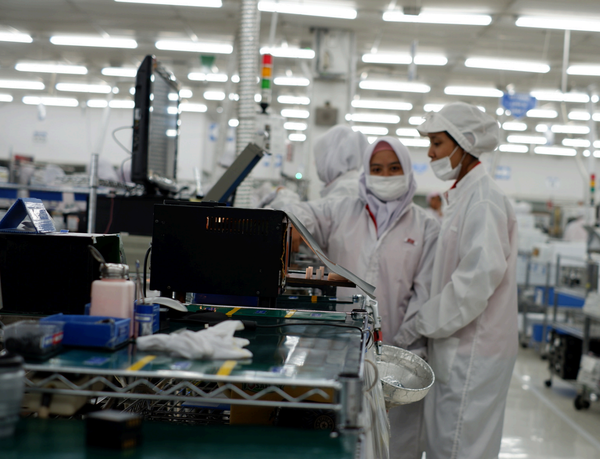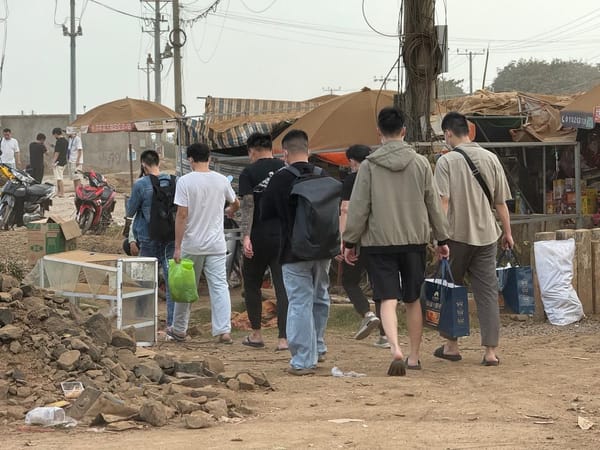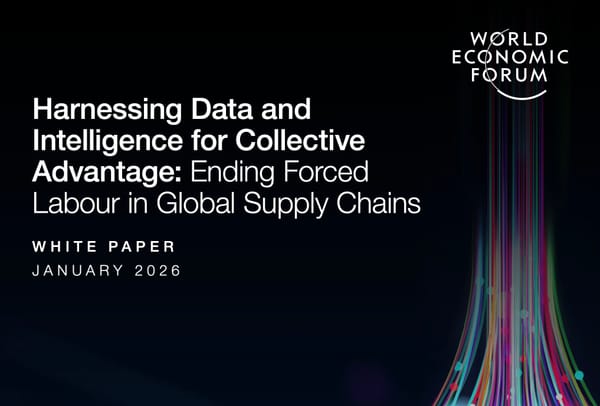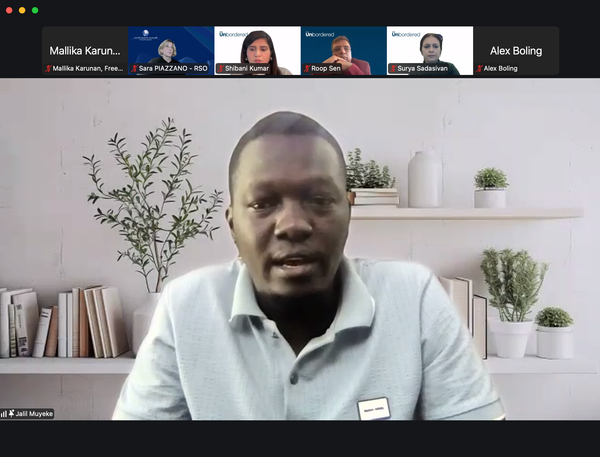Journalists and activists addressing human trafficking in Southeast Asia need international support
The global community must meaningfully support civil society in addressing forced criminality, rights groups call on the EU to respect human rights legal frameworks, and the U.S. bans frankincense oil imports over the use of forced labour.
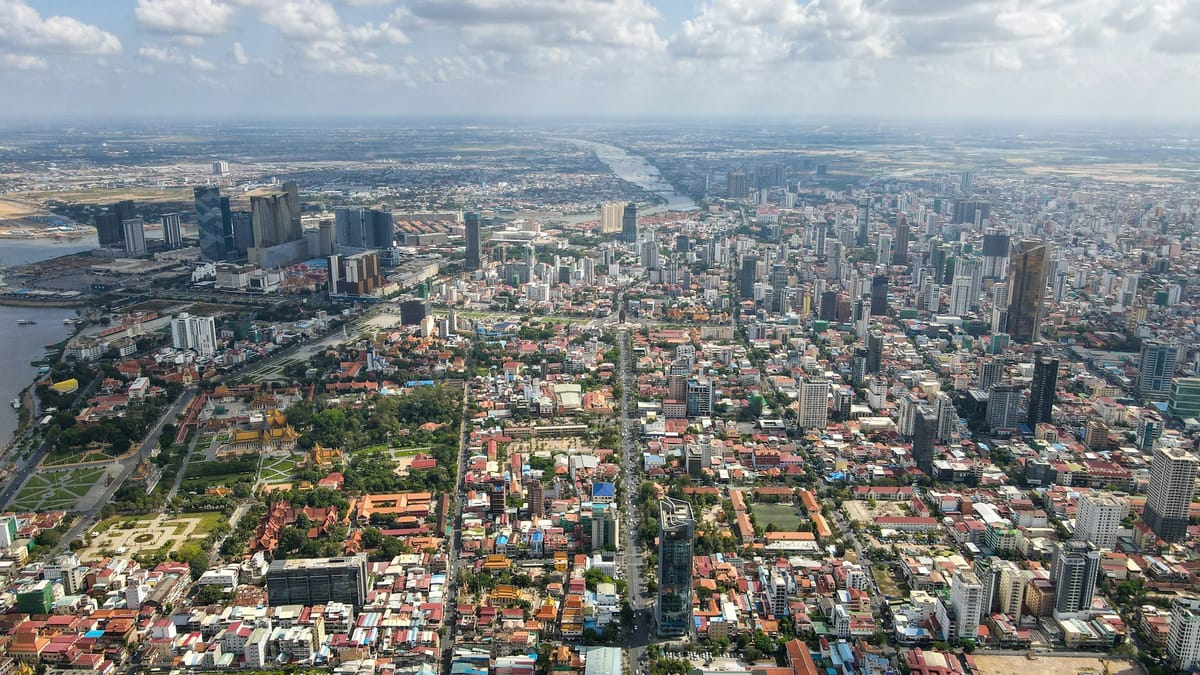
Local news outlets and non-governmental organizations (NGOs) operating in Southeast Asia require stronger international backing to continue their critical on-the-ground work against human trafficking for forced criminality, according to an expert panel convened by the Foreign Correspondents’ Club of Thailand. Speaking last week, the panelists called for sustained international attention, funding, and policy action to protect activists and journalists, promote press freedom, and hold oppressive regimes accountable.
Conservative estimates suggest that more than 120,000 individuals have been trafficked into online scamming compounds in Myanmar, with similar numbers reported in Cambodia and Laos. Victims are forced to participate in fraudulent schemes, with failure to meet quotas often resulting in severe punishment and even death. Investigative journalists, activists, NGOs, and victims’ families play a vital role in exposing these abuses, securing the release of victims, and advocating for their safe repatriation. However, these efforts are highly risky, and those who speak out face surveillance, intimidation, and retaliation from criminal groups and complicit government officials.
To address these challenges, the panel recommended a multi-pronged approach involving stronger international partnerships and targeted action. The speakers were members of Freedom Collaborative’s Trafficking for Forced Criminality Response Working Group, and many of the views and observations they shared underlined the group’s mission to facilitate cross-border and multi-stakeholder partnerships, and its advocacy for formal and informal channels of communication to be opened among both regional and international agencies, allowing information to be shared securely and urgent action taken.
One panelist observed that journalistic collaboration in Southeast Asia is gradually increasing, with reporters from Vietnam, the Philippines, and Indonesia beginning to share knowledge and resources, while connections are also forming between journalists in Cambodia, Thailand, Malaysia, and Myanmar. However, the panel highlighted that, despite these promising developments, there is an urgent need for initiatives such as workshops, fellowships, and training programs to strengthen these cross-border networks. International organizations and donors were identified as critical to providing resources, protection strategies, and advocacy for journalists and activists.
Moreover, the repression of journalists and activists across the region remains a pervasive issue, with consistent attacks reported over recent years. The panelists called on the United Nations and other international bodies to take a stronger stance against government censorship and suppression of the press, and advocated for the use of sanctions against key players in oppressive regimes as a strategy to hold states accountable for silencing media outlets and rights campaigners.
Cambodia was singled out as one of the most hostile environments for journalism in the region, yet some journalists have continued to produce impactful work despite the risks. However, following the recent arrest of investigative journalist Mech Dara under vague “incitement” charges, the Cambodian Government has achieved near total suppression of a free press. Although Dara was released on bail, his future as a journalist remains uncertain due to the risks involved.
Civil society organizations also face significant obstacles in responding to human trafficking at scale. While a handful of NGOs operate discreetly within Cambodia and along the Thai border, few can access key areas such as Myanmar’s Golden Triangle Special Economic Zone (SEZ). The region’s dynamics are complex, with scam center operators often colluding with law enforcement, armed groups, and local authorities. Similarly, in Laos, scam operations are concentrated in SEZs, where impunity reigns and the government has limited ability to enforce laws.
The panel renewed calls for a comprehensive strategy that emphasizes enhanced global collaboration and focused interventions. Increased funding and technical support for journalists and NGOs are essential to sustain their work and improve security for those operating in high-risk environments. Greater coordination between international organizations, governments, and civil society groups is needed to dismantle trafficking networks and hold complicit actors accountable. Finally, robust advocacy at the international level and the imposition of targeted sanctions against key enablers of trafficking and press suppression could serve as critical levers for change.
Here’s a round-up of other noteworthy news and initiatives:
Fifty humanitarian and human rights organizations working to protect the rights of refugees, asylum seekers and migrants have called on EU member states and the European Commission to respect EU and international human rights legal frameworks and safeguard the global refugee protection system, noting that recent policy proposals aimed at preventing the arrival of individuals seeking international protection and safety run contrary to current EU legal frameworks.
The U.S. has banned imports from Asli Maydi, a Somali company that, until 2023, supplied frankincense oil to the popular U.S. essential oils brand doTERRA, over the use of forced labour. The ban follows an investigation published last year by The Fuller Project into the abuse and exploitation of women frankincense sorters working for Asli Maydi in Somaliland.
Government sources in Australia have told The Guardian newspaper that a number of countries are routinely presenting domestic staff hired to work in the private homes of senior embassy officials as diplomats, evading the domestic worker visa system and obscuring them from government oversight and protections. Lawyers and campaigners say many of these workers face oppressive conditions, including “horrendous abuse” and “absolutely humiliating, degrading treatment”.
The Global Alliance Against Traffic in Women and Freedom Collaborative invite you to join an online conversation on “Money Matters: Analysing the impacts of anti-trafficking funding” – how much is reaching survivors, at-risk groups, and frontline organizations, and how much is spent on intermediaries and bureaucracies? The webinar takes place on 11 December at 14:00 GMT, with speakers presenting new research published in Anti-Trafficking Review, and reflecting on the experiences of frontline service providers.
The Mixed Migration Centre Europe, in partnership with the Danish Refugee Council’s Protecting Rights at Borders initiative, will launch a joint report on “Mixed migration in the Western Balkans: Shifting policies, smuggling dynamics, and risks” during a webinar on 28 November at 13:00 GMT. The research was conducted to better understand recent shifts in smuggling routes and operations, and the experiences of people on the move under stricter migration management.
Goodweave, which works to end child and forced labour in global supply chains, is looking for a Director, Programs, to support the planning, development, implementation, monitoring and reporting of all program-related operations.
And The Freedom Story is seeking a Communications Coordinator to work on its fundraising campaigns, content creation, and donor relations, with applications reviewed until 13 December.

